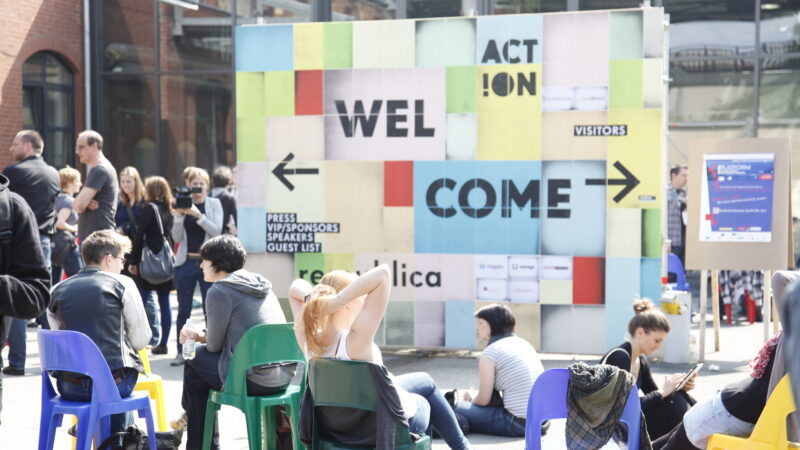re-publica is broken, but I hope not beyond repair

The German tech and politics conference re-publica has been going a decade now, and the tenth edition (in its third and final day today as I write this) is supposed to be about reflection.
I’ve been to eight editions of re-publica – I was first a speaker back in 2009 and have attended every time since – and never have I been so concerned about where this event is going. Speaking to other attendees here I know I am not alone. Our reflection is that we are a bit underwhelmed.
Don’t get me wrong – re-publica remains a lot of fun, and it is good to catch up with a lot of old friends and meet new people working in the same sort of areas I do. It’s in a super venue (Station Berlin at Gleisdreieck) and the practical issues that dogged some previous re-publicas (lousy wifi, patchy organisation) have largely been solved. A lot of sessions I’ve tried to attend this year have been full though – a case of too many attendees now?
But the real headache for me is the poor quality of the sessions. I have been to too many sessions where the speakers failed to do the basics that are required of a conference speaker, namely to answer these points:
- Why do I need to know what you are going to tell me?
- And what do you want me to do with what you have told me?
Put another way, it is essential to try to put yourself in the shoes of your audience, to see things from their perspective. That has been largely missing. Today’s panel on drones, and the Q&A with Günter Oettinger, were pretty horrid from the audience perspective, and also poorly moderated. Even the keynote talks from Eben Moglen and Hossein Derakhshan were lacking in precision and attention to detail. I’ve not heard anything close to the quality of Doctorow or Lessig.
Meanwhile the Media Convention seems to not differ from the rest of re-publica in any ways other than the shirts of the moderators are a bit sharper, and the speakers a little more self confident. The track on refugees is welcome, but the other tracks have lacked coherence as I see it. And the whole thing seems to have become uncoupled from its roots as an event essentially about the politics of the internet, and politics on the internet.
Meanwhile politicians – like Oetty and Andrea Nahles – now feel they want to attend, and companies like Deutsche Bahn and Bosch feel they need to exhibit, but I cannot tell if this is because re-publica has become so mainstream, or if it is because digitisation is finally starting to catch on in German firms. Or, perhaps, it is because the branding of re-publica is now so detailed, all pervading, and hence expensive that this is simply a question of money.
So that then is my reflection about re-publica this year. I feel things are a bit broken. Next year I would like to see a clearer focus to the sessions, closer attention to the design of the sessions to make sure they are audience friendly, and – above all – some sort of return to the more political roots of the event. Without that I think the event will be irreparably broken.
Hi Jon,
I also attended re:publica this year, and I must say I share your sentiments. Whilst I feel the venue is superb, and a welcome change from many of the professionalised politics/tech/journalism events I attend, I’m with you on the quality of the presentations themselves. Regrettably, there seems to be a level of complacency on the part of the speakers themselves – underprepared, with sometimes woefully convoluted slides.
I must concede that many of the more successful presentations I attended were smaller, not so highly promoted, and off the main stage. Perhaps here the speakers better appreciated the privilege of the platform, and demonstrated a greater level of respect to the audience.
I’m a little perplexed by your diagnosis – are you suggesting that the cause of this is an over-commercialisation of re:publica? Or corporate involvement? I was surprised to find that the more corporate presentations actually provided a welcome degree of professionalism to proceedings. But of course, it would be antithetical for re:publica to serve as a platform for multinationals.
I think instead the answer has more cultish roots: that the speakers so often already have such a following, and the atmosphere of re:publica is so casual that they don’t feel any pressure to deliver, and instead utilise the audience to loosely promote their work.